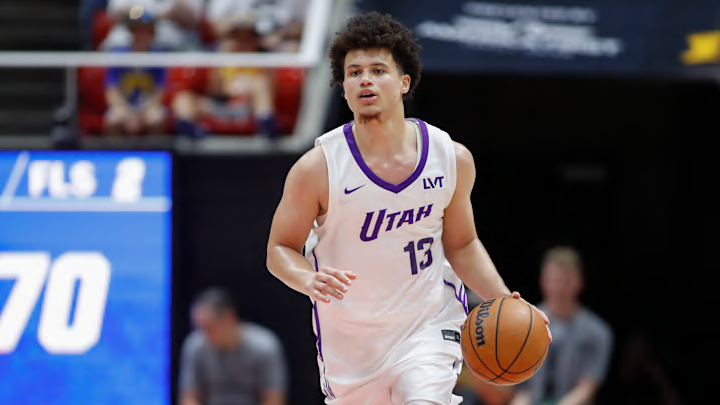The Utah Jazz made excellent use of the 2025 NBA Draft, replacing veterans and building for a brighter future with the No. 5 and No. 18 overall selections. Ace Bailey has inevitably become the talk of the town as a dynamic scoring threat who has garnered upside comparisons to six-time All-NBA honoree Paul George.
As the Jazz search for paths to sustained improvement, however, they must not be afraid to feature their other first-round draft pick in a prominent role.
Utah selected Walter Clayton Jr. at No. 18 overall after the former Florida Gators star turned in a season for the ages. He guided Florida to the 2025 NCAA Championship, winning the Final Four Most Outstanding Player award after previously securing SEC Tournament MVP honors.
In addition to thriving as a sharpshooting guard who torched opposing defenses, Clayton displayed an uncanny ability to take over in the clutch almost every time the Gators needed him.
It remains unclear how his game will translate to the NBA, with many expressing concerns over the fact that he's a a 22-year-old incoming rookie who stands at 6'2" with a 6'4" wingspan. Utah drafted him for a reason, however, and the time may never be better than 2025-26 to go all-in on exploring his potential.
With a roster structure that lends itself to Clayton playing big minutes as a first-year player, the Jazz must give the 2025 SEC Male Athlete of the Year a chance to learn by fire.
Jazz must let Walter Clayton Jr. play through potential rookie struggles
Utah has undergone drastic changes during the 2025 offseason, due in no small part to the decision to trade Collin Sexton to the Charlotte Hornets. Rather than replacing their most productive scoring guard, the Jazz added depth at center by acquiring Jusuf Nurkic.
That's created a compelling opportunity for head coach Will Hardy to go all-in on the youth movement in 2024-25—and Clayton should factor heavily into his rotation.
Utah will enter 2025-26 with a compelling two-headed monster at point guard. Keyonte George is coming off of a season during which he averaged 16.8 points and 5.8 assists per game, and Isaiah Collier averaged 8.3 points and 6.3 assists in just 25.9 minutes per contest as a rookie.
For as intriguing as Collier and George are as playmakers and downhill scoring threats, neither have found a way to consistently knock down jump shots at this stage of their respective careers.
Clayton, meanwhile, is coming off of a senior season during which he shot 38.6 percent on 303 three-point field goal attempts. He finished his four-year collegiate career with an identical mark of 38.6 percent, which seemingly implies that he has a skill that can be translated to the NBA.
Only time will tell if that vision will materialize, but Clayton's proficiency as a shooter gives him an early entry point into Hardy's somewhat crowded backcourt.
Even if Clayton struggles to perform, however, the Jazz must take advantage of the unique opportunity to run out three potential guards of the future without the fear of consequences. Utah isn't expected to contend, but is instead prioritizing personnel development—meaning the minutes distributed to the young core players could determine future decisions and rotational structures.
It's entirely possible that Clayton will have trouble translating his game to the NBA, but as a top-20 pick with a potentially elite jump shot, the Jazz must give him a chance to prove himself in 2025-26.
